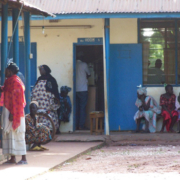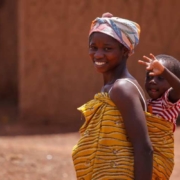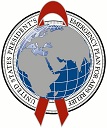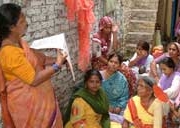Dialogue and Development

I have commented before on this blog about the need for secular aid agencies and donors to develop great faith literacy, just as the faith sector needs to be open to learning from and working with our secular counterparts in international health.
A couple of weeks ago, we saw one of those little steps in the right direction as the Department for International Development (the UK Government’s overseas aid ministry) launched their new set of Faith Partnership Principles in development. The great and the good of a variety of faiths were gathered at Lambeth Palace, and several fine speeches were made about the value that faith based organisations bring, the importance of working together, the importance of accountability in how aid money (from the UK Taxpayer) is spent, and how faith based organisations (FBOs) are already being effectively funded through the Global Poverty Action Fund (GPAF).
All very worthy, but a bit like preaching to the choir. While Andrew Mitchell, the Minister for International Development was there to make some speeches and (to effectively dodge) a very limited set of questions from the floor, he shot off after fifteen minutes to fly off (although not to Rio on this occasion!), while the faith groups all sat down to lecture one another on what we were all doing.
Now, don’t get me wrong, the Faith Partnership Principles paper is actually rather good. It sets out some clear areas where dialogue and understanding is needed on both sides (yes, secular, Western mind-sets are recognised as an actual world view, and one that may differ quite widely from those of the often more faith driven communities of the developing world!), and hard areas of disagreement are not side stepped. As a set of principles that outlines where both DFID and FBOs need to do work on better understanding and working with one another it is very good, very practical, and not too vague.
But, as a launch event, most of us from the FBO sector (at least those to whom I spoke subsequently) were left slightly perplexed by the notable absence of DFID staffers from the Q&A time after the minister’s departure. Because the point of the paper is that it is just setting down out principles, and then a (still sketchily defined) on-going process of engagement and dialogue will continue to develop the principles into practice. But there was no-one from DFID to talk to – we were just left talking to one another!
So, there was no actual dialogue at the launch of the paper that was principally about dialogue, and there was no space to explore how future dialogue would go forward. This could be because it was just a high profile, stage managed event for the great and the good, with the real work going on behind the scenes. But it did feel dangerously like throwing the religious communities a sop, and then going off to get on with the ‘real business’ of development.
I am hoping that I am wrong. However, at the very least we now have a document that can be used to hold both DFID and faith groups to account in how we work together. The challenge will be in finding out how we do this more effectively in practice.
With the DFID and Gates Foundation organised London Family Planning Summit coming up tomorrow, and with a faith based side event planned for the following day, this will be one of the first places to see how these principles work in practice. Watch this space…












Leave a Reply
Want to join the discussion?Feel free to contribute!